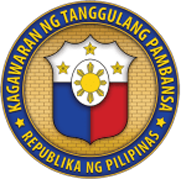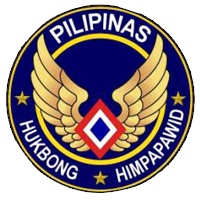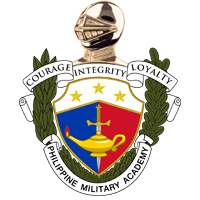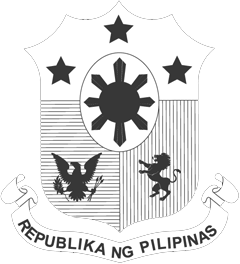Evolution of the AFP Mental Health Program
The AFP Mental Health Service started out as a vision of COL JAIME C ZAGUIRRE MC, a Brain Surgeon and Psychiatrist. He graduated from the University of Santo Tomas in 1935 at which time BGEN BASILIO VALDEZ MC established the Philippine Constabulary Medical Service that later became the AFP Medical Service pursuant to Commonwealth Act Nr 1 or National Defense Act in 1935.
CPT ZAGUIRRE became the first chief of Neuro-Psychiatry Service of then Victoriano Luna General Hospital (VLGH) in 1938. After the war, he pursued postgraduate specialty course in Neuro-Psychiatry in Brentwood Hospital, USA.
In 1946, the VLGH established its own 100-bed neuropsychiatric unit. MAJ ZAGUIRRE pioneered the Neuro-Psychiatric Screening and further reorganized the hospital’s military psychiatry. In response to increasing incidents of “amok”, MAJ ZAGUIRRE formulated the NP Screening Forms to study the personality, character, and mental status of recruits and address untoward incidents deemed consequences of faulty recruitment.
The evolution of Psychiatry in the Philippines highlighted the VLGH when in 1947, the first ever prefrontal lobotomy was performed by Major Romeo Gustilo on a violent schizophrenic patient. In December 1949, MAJ Zaguirre performed the first trans-orbital lobotomy for schizophrenia and conducted pioneer clinical trials in Insulin hypoglycemic shock therapy. He also started teaching his concept of Integrated Medical Psychology of the Individual Human Person in 1957, later started Neuro-Psychiatry Residency Training and became department Head of VLGH Psychiatry.
In 1950s, he recommended the hiring of Psychologists to further enhance the AFP NP Services and the first SOP on Neuropsychiatric Screening was published in 1960.The psychologists hired were distributed to the different AFP units as screeners and did initial care assessment of suspected cases of NP breakdowns.
In the 1970s, gaps in maintaining Mental Wellness were identified particularly for soldiers performing combat operations and new assignments. As such, AFP Mental Health practitioners (just put these names on the slide ppt Dr. Natividad Dayan, COL PAJARILLO, COL ANDRES YLLANA SR, COL PARAGAS and Psychologist Ms. Fely Batoon) initiated a new system with battery of tests, interviews and assessments and included comprehensive programs in other functional areas such as: (a) Preventive Psychiatry (b) Decentralization of the NP Screening activities; (c) NP screening of those seeking retention in the military service; (d) Treatment and Rehabilitation; (e) Training; and (f) Research.
With the decentralization of NP screening activities and capacitation of the hired psychologists, the Major Services developed their Mental Health programs suited to address the random cases of amok, complaints of anxiety attacks, and other mental health conditions as the OTSG continued to provide oversight and facilitated trainings for Major Services teams on Stress Management, Critical Incident Stress Debriefing (CISD) and counselling.
In 1991, the Department of National Defense (DND) and AFP realized the Mental Health concerns of soldiers who are about to be separated from the service due to combat-related injuries and disabilities that render them unfit to further serve. The DND embarked on PROJECT KAPAGDAKA (Kapakanan at Gabay sa Dating Kaanyuan), a comprehensive rehabilitation program entailing medical and physical rehabilitation, psychosocial and psychological empowerment and vocational preparation of these soldiers. and family members in order sustain their sense of self-worth, financial independence and continued service for their families and communities.
In 2000, DND created Kalusugan para sa Kawal ng Bayan (KKB) Mental Health Committee to oversee the development and implementation of the AFP Mental Health Program which was called MISMO for “Malusog na Isip para sa Mahusay na Organisasyon”. MISMO aimed to inform and educate soldiers in promoting Mental Health and preventing mental illness, enforce the integration of regular stress management after operations; establish referral system in DOH Medical Centers; and advocate for the strict implementation of NP Screening. This program paved the way to the creation of the AFP Mental Health Team organized by the OTSG who are deployed as necessary for post-operation debriefings.
In 2002, DND in collaboration with the OTSG embarked on the Combat and Operational Stress Management (COSM) program which conducted (1) Assessment of the Combat and Operational Stress Control (COSC) System and Program Implementation in the AFP; (2) publication of the COSC Handbook; and (3) the COSC Training and Dissemination Package.
In 2015, SOP Nr 02, entitled: COSM was published and AFP Mental Health Teams were deployed to support situations particularly pre- and post-deployment.
In October 2017, during the ASEAN Defense Ministers' Meeting—Plus, Philippine Secretary of Defense Delfin Lorenzana forged partnership with US Defense Secretary Mattis which paved the way for a 5-year interoperability program on Mental and Behavioral Health with Marine Forces Pacific (MARFORPAC). Together with OTSG, an initial gap analysis through a Seminar Workshop on Policy Development was held among key AFP mental health practitioners, both military and civilian. The group identified the need for an AFP-wide integrated and comprehensive Mental Health Program that will address (1)combat-related mental health concerns yet equally consider the evolving problems of (2)stigma that interferes with access, (3)capability and logistics constraints, lacking new (4) policies for screening, suicide prevention and care coordination, as well as (5) diagnostic, care and awareness access.
Over the years, the mental health challenges evolved with the changing times. As technology became more advance, internet and social media-related anxiety and depression became big concerns for the general population. Cases of adolescent suicide and panic attacks increased, bullying and disease-related stigma and discrimination also became prevalent. This was further aggravated with the advent of the COVID-19 Pandemic and more severe natural disasters. Considering this age group in which our
new recruits belong, the AFP realized the need to refocus its efforts in addressing said challenges. Likewise, in 2019, the Philippine Mental Health Act was passed.
Aligning with these changes and with the law, AFP SOP Nr 20, entitled: PTSD and Mental Disorders was crafted which covered prevention and early management of PTSD and other MH conditions through Psychological First Aid (PFA), Mental Health and Psychosocial Support (MHPSS) and Psychosocial Processing (PSP). It emphasized the creation and training of a multi-disciplinary Mental Health Teams (MHTs) in AFP units to provide as community-based Mental Health advocacy and services. The Major Services then launched Mental health programs (PA - Comprehensive Mental Health Program, Mental Health and Resilience Center; PN - SOP Nr 05 or the MHPSS Program, Annual Mental Health Summit) and other platforms during the Pandemic (Mental Health Crisis hotlines or Online Platforms for MHPSS, telemedicine).
Despite all the programs, the Surgeon General’s review of 3rd quarter of 2021 showed that majority of the conditions are either stressor-induced, or still pre-existing conditions such as Bipolar Disorder and Schizophrenia. Thus the need to focus beyond combat and instead look further into non-medical triggers and effective screening respectively. Also noted were alcohol and substance-induced which are supposedly administrative concerns.
In 2022, the OTSG proposal for add-on to the CSAFP Scorecard on the initiative of Mental Health Program was approved. This will provide measures to ensure (CSAFP Scorecard inititative slide 1) Mental Health Promotive and Preventive activities as well as proper referral system on the ground, (CSAFP Scorecard inititative slide 3) Operational Readiness including a surveillance system and personnel empowerment (CSAFP Scorecard inititative slide 4) on Mental Health through the AFP education and training centers. This 2023, the new SOP on Standardization of NP Screening across all services is already for publication. And as a tool to spark the conversations along these efforts, today we launch the AFP Mental Health webpage on this World Mental Health month of October 2023.
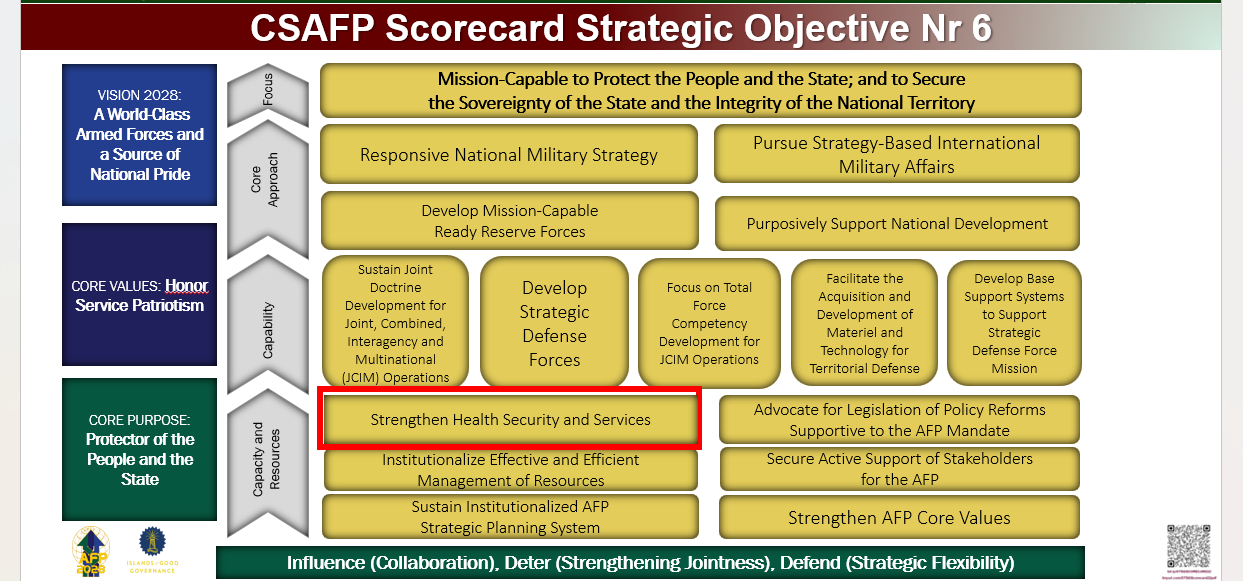
Because we believe conversations in mental health can significantly increase awareness, reduce stigma, deter discrimination and stimulate access to services. This brings us closer to our envisioned holistic physical and mental well-being of our troops. So, let the conversations in Mental Health begin (put Mental health quotes)…
